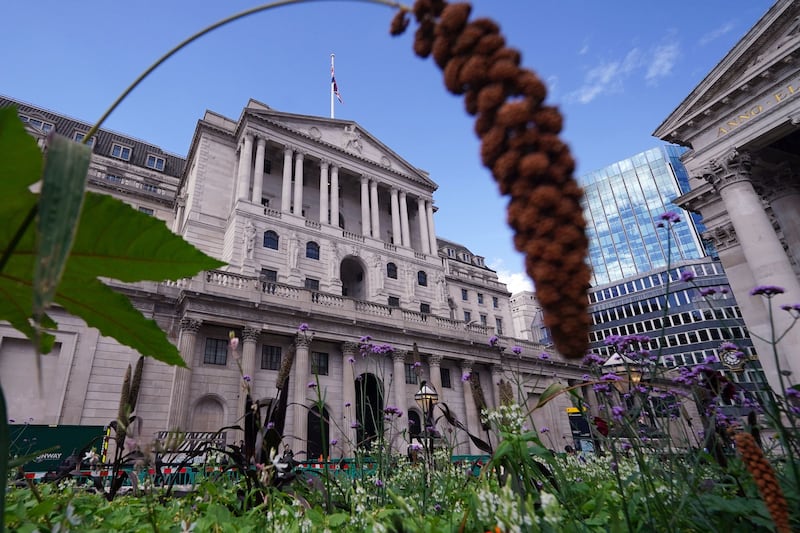A crisis in housing supply is not unique to Ireland and similar problems are being experienced in Britain and beyond, Leo Varadkar has insisted.
The Taoiseach was commenting after issues related to housing were discussed at a meeting of political leaders at the British Irish Council summit on Jersey.
Mr Varadkar also defended the effectiveness of his government’s recently introduced vacant property tax and expressed caution about the prospect of reintroducing mortgage interest relief to help homeowners on tracker deals who have seen their monthly bills rocket over the last year.
The council, which meets twice a year, brings together the UK and Irish governments, the devolved administrations in the UK and Jersey, Guernsey and the Isle of Man.
Northern Ireland was not represented at a political level at the latest summit due to the impasse at Stormont.

At the post-summit press conference on Friday, Mr Varadkar was asked if he had learned anything about how other administrations are tackling housing issues.
“The problems that we face in terms of housing are actually very similar,” said the Taoiseach.
“The difficulties that we have in Ireland in terms of high rents, high prices, a general housing shortage are being experienced here in the Channel Islands, certainly in England, also in cities like Cardiff and Edinburgh, Glasgow as well.
“The housing crisis might have a different form in different countries but it does exist in all of our jurisdictions and there’s lots of reasons for that – rising populations, smaller households, inadequate supply for prolonged period and also the strength of our economies as well, which of course drives up demand.”
Mr Varadkar commended the modern methods of construction he had seen being used in Jersey.
“That is definitely something that we’re doing already in Ireland but I think we can do more of,” he said.
Mr Varadkar was also pressed on efforts to repurpose vacant homes in Ireland. He rejected suggestions the vacant property tax – which is levied at three times the rate of local property tax – was ineffective.
He said if the tax was the “stick”, the “carrot” was the grant scheme offering people between 50-75,000 euro to redevelop vacant and derelict homes.
The Taoiseach also responded to renewed calls for the reintroduction of a form of tax relief on mortgage interest repayments following the series of interest rate rises by the European Central Bank (ECB).
“We’ve seen now what is the eighth increase in interest rates in a very short period of time,” he said.
“For some people, particularly those on tracker mortgages, it means hundreds of extra euros and mortgage payments every month and that’s really biting a lot of people and I understand that.
“It is important to say that the ECB is independent in its decisions and it is increasing interest rates for a reason, which is to bring inflation under control and to restore price stability. And if that can be achieved that benefits everyone – people who have mortgages and also people that don’t.
“So it is important to be frank with people about that. In terms of any interest relief in the budget, that’s something we’ll have to consider between now and then.
“But it’s certainly something that’s complicated to do. And it is only fair to point out that a lot of people who are now suffering from the increased effects of high interest rates would have been on very low interest rates for a prolonged period of time.
“And interest rates of between 3 and 5% are actually normal. If you take the longer period of history, they are close to the historical average.
“So people who suggest, for example, a temporary measure to help people with higher interest rates, they really need to ask the question, ‘How temporary would it be?’
“Because we had a very prolonged period for many years of very low interest rates and things are now resetting to what would be close to the historical average of somewhere between 3% and 5%.”
Mr Varadkar said there were “lots of ways” to help people struggling amid the cost-of-living crisis other than action on mortgage interest.
“It’s about how much you earn, it’s about how much you get to keep after tax and then how far the money goes,” he said.
The Fine Gael leader added: “And then beyond that their (people’s) money goes further by reducing the cost of things that we do have control over as a government, for example the cost of childcare, the cost of going to school, the cost of health care, the cost of college.”
Mr Varadkar said the summit meeting did not involve discussions on potential joined up action to drive down prices in the supermarkets.
“We know from years of experience, and also from what’s been tried and tested in other jurisdictions, that the best way to have prices that are affordable in our shops is competition rather than government regulation,” he said.







